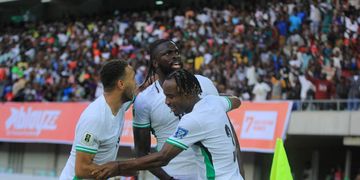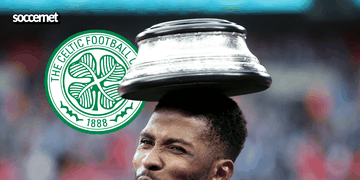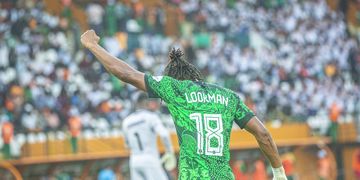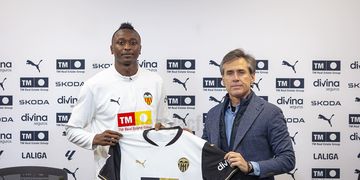Eight years ago in Johannesburg, Nigeria's national team made history as they won their third Africa cup of nations title
February 10, 2013, Nigeria senior national team won their third Afcon title in South Africa after edging out Burkina Faso in the final.
The Super Eagles were making a return to the tournament after missing out on the previous edition hosted by Gabon and Equatorial Guinea.
The 2013 competition was hosted immediately after the 2012 edition because CAF switched the competition from an even-numbered year to an odd-numbered year to avoid a clash with the FIFA World Cup.
Libya were originally the host but pulled out due to the civil war going on in the country at that time. South Africa were initially scheduled to host the 2017 edition, but they traded places with Libya.
Nigeria, led by Stephen Keshi, went into the tournament as an underdog due to the lack of proven and top players in the squad.
The Super Eagles were drawn in Group C along with Burkina Faso, Zambia and Ethiopia. They started their campaign on a disappointing note, playing a 1-1 draw against the Stallions.
Emmanuel Emenike gave Nigeria the lead in the 23rd minute, and it looked like that would be the winner until AlainTraore popped up in the fourth minute of added time to seal a point for Burkina Faso.
The second game against Zambia also had a similar feeling with Emenike 57th minute strike at the Mbombela Stadium, giving Nigeria the lead.
However, the Chipolopolo were awarded a controversial penalty five minutes from time, converted by their goalkeeper Kennedy Mweene.
The result left Nigeria needing to win their final game against Ethiopia to avoid a group stage exit. And they did just that, although not without nerves.
Neither team was able to find the breakthrough in the first half. It stayed like that until Nigeria were awarded a penalty in the 80th minute, which Victor Moses duly converted.
The Super Eagles killed any hopes of a potential equaliser in the 90th minute after Moses converted from the spot once again.
Nigeria finished second behind Burkina Faso courtesy of the win, and the reward was a quarter-final clash against tournament favourites, Ivory Coast.
Not many people gave the Super Eagles a chance against the Elephants, including the Nigeria Football Federation (NFF). The NFF had reportedly booked a plane that would take the squad back to Nigeria after the clash.
Ivory Coast had stars like Yaya Toure, Didier Drogba, Cheick Tiote, Gervinho and Salomon Kalou in their line-up on that day.
However, it was Nigeria that took the lead through a long-range freekick from Emenike two minutes before the break. The Elephants restored parity five minutes after half-time when Tiote headed home a freekick.
But against all odds, it was the Super Eagles that took the lead again courtesy of a Sunday Mba deflected strike in the 78th minute to complete the upset.
Their quarter-final made Nigeria the favourites for the rest of the tournament, and they backed it up with a comfortable 4-1 victory over Mali in the semifinal.
While the win over Ivory Coast sent out a statement, the win over the Malians was Nigeria's best performance in the tournament.
Elderson Echiejiele put Nigeria ahead after Moses had shown an extraordinary skill to beat his marker. Brown Ideye made it two before Emenike scored his third of the tournament to give Nigeria a three-goal lead in the first half.
Ahmed Musa finished off a pass from Mikel to make it four after the break. Mali pulled one back in the 75th minute, but it was indeed a commanding performance from the Super Eagles.
Nigeria set up a date with Burkina Faso in the final. The Stallions had beaten four-time champions Ghana via a penalty shootout in the other semifinal.
It meant Nigeria rounded up the competition with the same team they played in the first match. The final was a cagey affair, with both teams not taking too many risks.
However, it was Stephen Keshi's led side that opened the scoring, which was also the winner, courtesy of a finish from Sunday Mba in the 40th minute.
The former Warri Wolves jumped on a loose ball before flicking it over Mohamed Koffi to fire home a left-footed volley.
It was a goal former England international Paul Gascoigne would've been proud of having scored a similar one at the Euro 1996.
Burkina Faso tried to find a way back into the game, but they never threatened. Instead, it was Nigeria that should have doubled their advantage, but they were wasteful in front of goal.
It did not matter, though, as Mba's strike was enough to seal Nigeria's third win at Africa's biggest competition for the first time since 1994.
What Followed?
Mba was one of the players of the tournament, but sadly, his career went on a downward spiral after then.
Stephen Keshi offered his resignation after the tournament due to the treatment he received while the tournament was in play.
However, he was talked back into the role by former President Goodluck Jonathan. Keshi later led the team to the Confederations Cup and a second-round finish at the 2014 World Cup.
He was then fired in 2015 following the team's failure to qualify for 2015 Afcon.
Sadly, the former Super Eagles captain lost his wife later that year, before the sad news of his passing a year later.
Despite the win, Nigeria did not qualify for Africa's biggest showpiece until 2019.





